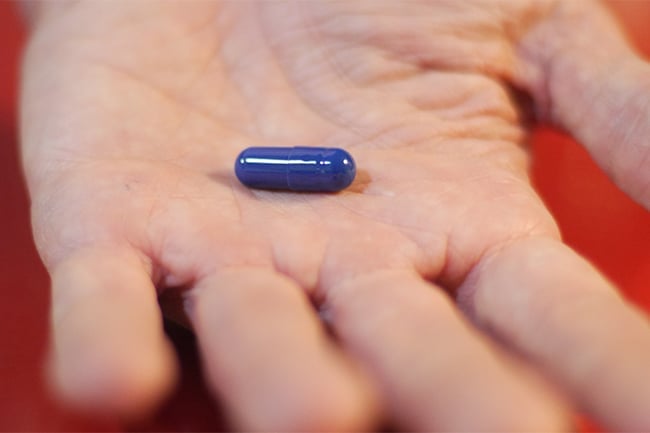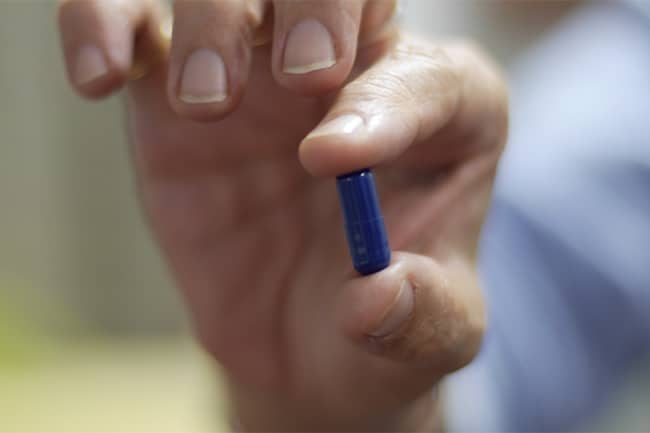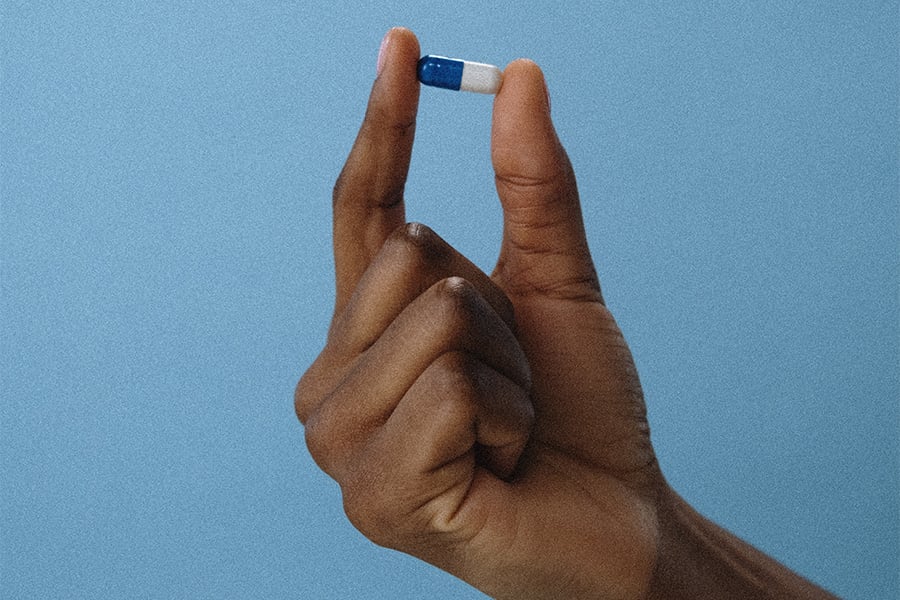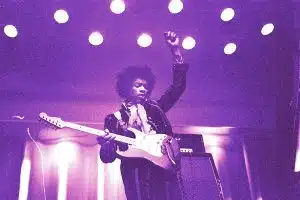This feature is part of a collaboration between DoubleBlind and MUD\WTR to investigate what access to psychedelic-assisted therapy might look like after federal approval. MUD\WTR is a company on a mission to create healthy minds through healthy habits. Trends w/ Benefits is their storytelling platform that focuses on well-being and psychedelics. Once you’re done here, head over to MUD\WTR and get stuck into Rescheduling Psilocybin: A Beginner’s Guide.
It’s been more than three decades since the Drug Enforcement Administration made MDMA—sometimes referred to as ecstasy—federally illegal, amid its growing popularity in underground rave culture as well as among therapists. Since then, therapists, researchers, and psychedelic advocates, more broadly, who believed in its therapeutic potential have been working toward overturning that. And now, they’ve almost succeeded.
MDMA, along with accompanying psychotherapy, could be available for patients as a prescription medication in as soon as one to two years. The Multidisciplinary Association for Psychedelic Studies (MAPS), the organization behind the federally-approved MDMA research, recently completed the final phase of studies investigating the drug for post-traumatic stress disorder (PTSD) prior to approval. The progress of the MDMA studies is seen as an indication by stakeholders—prospective investors, researchers, entrepreneurs, and advocates—that legal psychedelic medicine, not just MDMA but other compounds such as psilocybin, too—really is on the horizon. And yet, there remain many vital questions.
Who is going to pay for this treatment? Will it be covered by insurance? Who will qualify? Will historically marginalized communities who are often neglected by the healthcare system be able to benefit from it? As the industry is in the planning stages, a lot of this is unknown.
MDMA Therapy Cost
MAPS-Public Benefit Corporation, a subsidiary of MAPS, a nonprofit research and educational organization founded in 1986, has spearheaded the research showing MDMA’s therapeutic potential and will be the company selling the drug to practitioners if it’s approved. “Among our two top priorities is ensuring that treatment is covered by payers, that is insurance companies. I mean both the drug and the therapy, because they can’t be separated. Reimbursement for the drug is what will constitute revenue for MAPS-PBC and reimbursement for the therapy will be revenue for the therapists delivering that service,” explains Joy Sun Cooper, chief of Patient Access and Head of Commercialization of MAPS-PBC.

MAPS’ efforts, says Cooper, are currently focused on ensuring that payers see value in this treatment and, therefore, opt to cover it, so patients are not left with an out-of-pocket responsibility. “We have been doing quite a lot of market research with payers, all kinds, with some of the major national and regional ones and we are getting great feedback. What we are hearing is that PTSD is a huge problem and growing, it is an unmet need. Payers know that the standard of care—standard drugs and therapy—is not working, and they see that the clinical evidence that we have generated is really robust,” she explains.
The fact that nothing like this exists currently in the medical field—a drug meant to be delivered in conjunction with therapy—makes it complicated for insurers to figure out how to pay for it. “Prescription drugs are covered under the pharmacy benefit and therapy is covered under the behavioral benefit. These are separate—and often siloed—business units within a payer [insurer] that will need to coordinate to make a coverage decision, set medical policy, and to actually implement coverage for MDMA-assisted therapy,” adds Cooper.
How to Grow Shrooms Bundle
Take Both of Our Courses and Save $90!
MAPS has not yet made the actual cost of the drug public. Knowing how expensive therapy is, we can expect that the many hours needed for a complete MDMA-assisted treatment will make it a costly one. It’s hard to pindown one price, however, as there will be different treatment iterations. For example, one of the therapists involved in the MDMA session could be a trainee, hence lowering the price, or only one session might be necessary. “We are seeking approval for an acute (not chronic) course of treatment that includes up to three MDMA-assisted therapy sessions. Patients in the real world could receive one, two or three MDMA-assisted therapy sessions,” says Cooper. MAPS will set the price of the drug but not the cost of the therapy associated with it, which in the end will be determined by providers and payers. The organization expects to have at least six years of market exclusivity on the drug, meaning no one else can sell it during that time.
Heidi Allen, Ph.D., an Associate Professor at Columbia University School of Social Work who serves on the Clinical Advisory Board at Usona, a nonprofit medical research organization investigating psilocybin, has studied access and affordability of healthcare in America, particularly for underserved populations. She says access to MDMA-assisted therapy is going to be everybody’s responsibility, not just MAPS’, as it’s going to involve many actors and entities, from the manufacturers to the insurers, licensing boards, state legislatures, and providers. “All of that is going to have to align toward access, because if at any given point any of those is misaligned there is going to be a drop in people’s ability to get the treatment,” she tells DoubleBlind. If these things aren’t aligned, Allen says, “absolutely this is a treatment that is going to increase mental health disparities.”

One thing MAPS could do as a manufacturer of the drug is participate in the Medicaid drug rebate program, she says. “If they don’t do that then nobody on Medicaid will have access. If they do, then almost everyone on Medicaid will at least have the drug covered and the difficulty will then be finding providers who accept Medicaid who can provide the therapy part of that package,” she explains. The fact is that MAPS is taking this product and putting it out in a market that has known access disparities for therapists. “We have a very significant problem with not enough access to mental health therapy, period, in general,” says Allen, adding how “there is a long history of mental health therapy being not at parity with physical health when it comes to payment.”
As a means to reducing financial barriers to uninsured and underinsured patients, MAPS says they are developing a Patient Assistance Program (PAP), through which the company will provide subsidized or free drug product for those who qualify. This therapy modality, however, is in the pre-FDA approval stage so no further information on eligibility criteria or how robust it will be is available at the moment.
A small number of patients also are receiving access to MDMA therapy prior to FDA approval through a federal program called Expanded Access, or compassionate use, which enables patients to access treatments that are currently being researched but not yet approved when there are no alternatives on the market. In early 2020, MAPS announced that the U.S. Food and Drug Administration (FDA) had agreed to its application for an Expanded Access program for MDMA-assisted psychotherapy for posttraumatic stress disorder (PTSD). The protocol is active and enrolling at the moment in four locations in California, Maine, Maryland, and North Carolina.
Connecticut recently passed a bill that will enable first responders to receive MDMA therapy prior to FDA approval through expanded access and a similar effort is underway in Pennsylvania.
Therapists running their own practices are already thinking about how to make MDMA-assisted therapy more accessible to people with lower financial means. “There are still many unknowns, like how many sessions with the drug a person should have, what’s the best time to space them out…There are still a lot of details to work out to refine the treatment,” says Brian Pilecki, a MAPS-trained clinical psychologist at Portland Psychotherapy, highlighting the difference between what MDMA-assisted therapy might look like in real life and the trials conducted so far.
Pilecki says one way to reduce cost may be having one of the two therapists present during MDMA treatment be a student or trainee of some sort. Another effective way to reduce cost, he believes, will be group settings, which, he says, can have as much healing power as individual treatments. “There is a lot of healing from doing psychedelics in a group setting, the shared vulnerability, going through something like this together, integrating it together,” Pilecki says. “A community of support is created this way. This will grow as a treatment modality with MDMA and psilocybin.”
Diversity and Inclusion in MDMA Therapy
Some of the first trials on MDMA-assisted therapy for PTSD focused on war veterans, or people affected by events like 9/11. When hearing about PTSD, many people think of first responders: veterans of the military, police officers, firefighters. The reality is that while veterans often present hard cases for treatment, they constitute a minority of the population with PTSD. Most of the people with PTSD are victims of many other expressions of violence like racism, sexual orientation discrimination, sexual violence against women, bullying and gunviolence, among others. According to statistics from the Department of Veterans Affairs, of the six percent of Americans—about 12 million—who have PTSD, the number of women is double that of men.
Clinical psychologist Dr. Monnica Williams conducted an MDMA-assisted therapy trial for PTSD for racial trauma at the University of Connecticut in 2017, the first of its kind. Although it was stopped before completion, it helped pave the way for current efforts to increase diversity in clinical trials—and in the psychedelic movement more broadly. In its latest trial, completed in November 2022, MAPS said that enrollment of people of color doubled with the total participants of color representing more than 50 percent of the total subjects in the study.
“Veterans have suffered a lot and have been spending a lot of money out of their pockets for things like going to Mexico to get psychedelic treatments that are legal there and not here, so what a shame that our country doesn’t have more to offer after their service and sacrifice. But there are other people that are traumatized too,” says Williams. “We can’t forget those who are traumatized due to racism and discrimination which I see every day, or people forced into impoverished neighborhoods, and certainly traumas due to sexual and gender orientation.”
Access to MDMA Therapy
Williams says the key to improving equity and offering appropriate therapeutic treatment for people from communities historically targeted by the War on Drugs is to ensure that there are enough therapists who can relate to their experiences. In the past, she says, many psychologists were unable to grasp the severity of racial trauma when she shared some of her work around mental health care disparities with her colleagues. In 2019, MAPS hosted an MDMA therapy training for communities of color in Kentucky and they currently offer a number of scholarships, in order to change that. Cooper stresses how critically important it is that therapists reflect the patient populations they know most need treatment.

Kwasi Adusei, a licensed psychiatric nurse who grew up in the Bronx and is originally from Ghana, attended the 2019 retreat in Kentucky. “It was a beautiful opportunity to connect with a group of people with varying identities and backgrounds,” Adusei reflects. “Of course, people of color are not a monolith and, even in this very specific training, we were all coming from very different backgrounds, experiences, and perspectives, though nonetheless there was something binding us too. The takeaway from this training was this notion of spirit first, and feeling really connected—that’s the thing that really bound us. Our identities were not the thing that bound us, but a connection to spirit. It was an opportunity for us to learn from other people in a way that broke down hierarchies and to learn from the wisdom of the room, not only from the trainers but also from the trainees.”
We appear to be getting closer to having these novel therapies available as FDA-approved medications. But, as Allen explained, we know the market has a long history of neglecting mental health, particularly among historically marginalized communities. Efforts are underway, but there remains a lot to figure out.

DoubleBlind is a trusted resource for news, evidence-based education, and reporting on psychedelics. We work with leading medical professionals, scientific researchers, journalists, mycologists, indigenous stewards, and cultural pioneers. Read about our editorial policy and fact-checking process here.

DoubleBlind Magazine does not encourage or condone any illegal activities, including but not limited to the use of illegal substances. We do not provide mental health, clinical, or medical services. We are not a substitute for medical, psychological, or psychiatric diagnosis, treatment, or advice. If you are in a crisis or if you or any other person may be in danger or experiencing a mental health emergency, immediately call 911 or your local emergency resources. If you are considering suicide, please call 988 to connect with the National Suicide Prevention Lifeline.



